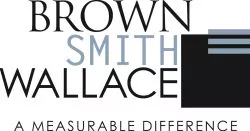In June, the Department of Labor, Department of Health and Human Services, and the IRS jointly issued proposed regulations addressing various provisions of the Affordable Care Act (ACA). In particular, the regulations cover expatriate health plans, excepted benefits, and the definition of essential health benefits (EHB) for purposes of the prohibition on lifetime and annual dollar limits.
The agencies proposed the regulations to apply to plan years beginning on or after January 1, 2017, though reliance is permitted pending the applicability of the final versions. To the extent that the final regulations are more restrictive, they'll be applied without retroactive effect.
Expatriate health plans
Consistent with previous guidance, the proposed regulations would provide that many ACA requirements don't apply to expatriate health plans that meet detailed eligibility and coverage standards, including requirements to:
- Provide minimum value
- Cover inpatient hospital and outpatient facility services
- Comply with most portability provisions under the Health Insurance Portability and Accountability Act (HIPAA) that were in effect before the ACA
Coverage under a qualifying expatriate health plan would count as minimum essential coverage for both individual mandate and employer shared-responsibility purposes, as well as related reporting. Application of the tax on high-cost health coverage (commonly known as the "Cadillac tax") to expatriate plans isn't addressed because the IRS anticipates addressing the issue in future guidance.
Excepted benefits
The proposed regulations address various types of excepted benefits. Such benefits are exempt from certain requirements under HIPAA's portability provisions (for example, special enrollment), the ACA (for instance, the age-26 mandate, enhanced claim and appeal rules, and annual dollar-limit prohibition) and other federal laws. Some specific areas related to excepted benefits discussed include:
Supplemental coverage- The proposed regulations would incorporate prior FAQ guidance allowing certain supplemental health insurance that doesn't include coverage of EHB — as defined in the state where the coverage is issued — to qualify as excepted benefits.
Fixed indemnity coverage- The agencies expressed concern that certain group health plans providing fixed indemnity coverage that qualifies as an excepted benefit have incorrectly led some participants to believe that the coverage constitutes minimum essential coverage. The proposed regulations would require, as a condition to excepted benefit status, that application or enrollment materials for group hospital or other fixed indemnity insurance notify enrollees and potential enrollees that the coverage is supplemental to major medical coverage. The materials must also make clear that a lack of minimum essential coverage may result in individual mandate penalties.
Specified disease coverage- Comments are sought on whether to limit the number of diseases or illnesses that may be covered or whether disclosures should be required that these policies aren't minimum essential coverage.
Short-term limited-duration insurance- The proposed regulations would require the expiration date (taking into account possible extensions) of short-term coverage to be less than three months after its original effective date. (According to the agencies, limiting the duration of such coverage improves coordination with the individual mandate penalty, which includes an exemption for gaps in coverage of less than three continuous months.) Enrollment materials would have to include a notice that the short-term coverage isn't minimum essential coverage.
EHB for purposes of lifetime and annual dollar limits- Employer-sponsored self-insured and insured large group health plans aren't required to cover EHB, but they're barred from imposing annual or lifetime dollar limits on offered EHB. Current rules allow plans to define EHB by reference to any of the 51 benchmark plans identified by the states or the District of Columbia, or one of the three largest Federal Employees Health Benefits Program plans.
Noting that the base-benchmark plan selected by a state (or applied by default) may not reflect the complete definition of EHB in the state, the regulations propose to add cross-reference to the EHB regulations requiring supplementation of benchmark plans and ensuring the inclusion of certain state-required benefit mandates.
Implementation implications
These proposed regulations address several important ACA implementation topics. In addition, they reflect a continued concern that consumers may not fully understand the implications of limited coverage that remains available after the ACA's passage. As an employer, you should work with your insurer and advisors to familiarize yourself with the proposals as we await the final regulations.
COBRA notices may include Marketplace info
The Department of Labor (DOL), Department of Health and Human Services and IRS jointly issued another important piece of guidance in June. Click here to learn more.
If you have questions about expatriate health plans, please contact Ron Present, Partner and Health Care Industry Group Leader, at rpresent@bswllc.com or 314.983.1358.
The content of this article is intended to provide a general guide to the subject matter. Specialist advice should be sought about your specific circumstances.

